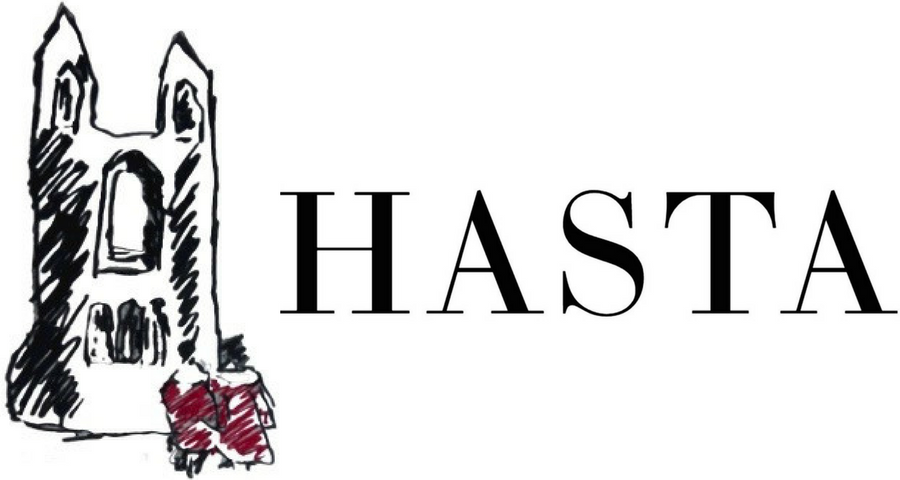Hannah Höch, 1889-1978
By Kayleigh Wiseman
Cut with the Kitchen Knife through the Last Weimar Beer-Belly Cultural Epoch of Germany, 1919-20, photomontage
Born 1st of November Hannah Höch was the one of the originators of photomontage and a driving force of the European Avant-Garde, yet history predominantly recalls her as the sole woman associated with the Dada Group. Höch, regrettably yet predictably, has been one of numerous female powerhouses who have been historically overshadowed by their male contemporaries.
Raised in a sheltered and conservative community in Gotha, Höch’s early life revolved around domestic responsibility, even involving her leaving school to take care of her younger siblings. Höch was finally given the freedom she desired when she enrolled in the Charlottenburg School of Applied Arts in Berlin in 1912, studying in calligraphy, embroidery, glass and wallpaper design. This first brief period of independence was short-lived; Höch soon returned to Gotha at the outbreak of World War I to assist with the Red Cross. In 1915 Höch returned Berlin, where she took classes in graphics at the National Institute of the Museum of Arts and Crafts.
In 1917 Höch met Raoul Hausmann, a member of the Dada Group, and then soon joined the group herself. Her political satire collage, Cut with the Kitchen Knife through the Last Weimar Beer-Belly Cultural Epoch of Germany, 1919-20, was the most appraised work of art exhibited during the First International Dada Fair, which mocked and condemned the patriarchal culture of the Weimar Republic. Her involvement within the Dada group, though, was continuously contested by male members who criticised her independence, androgyny, and bisexuality. She has historically been overshadowed by her relationship with Hausmann; the two artists were involved in a tumultuous affair lasting until 1922, in which Höch left Hausmann after nine years of unfulfilled promises to leave his wife and start a family with her. Hausmann, like his Dada counterparts, frequently dismissed Höch’s opinions on everything from arts to politics, even going as far to deny Höch’s membership in Dada after their separation.
After parting with the Dada group, Höch continued with photomontage and continued to reinvent, critique and explore themes of the “New Woman”. In the aftermath of the First World War, societal changes granted women greater independence and employment opportunities, and attitudes towards sex became more progressive and liberal in the realm of modern fashion. Despite these major changes, Höch remained guarded and aware of the disparity between the idealised rhetoric and the actual reality of the times. This disparity and the juxtaposition between the “Old Woman” and the “New Woman” were the perfect contrasting notions for her photomontage. Collages of cut up and reassembled photos from media representations, magazines, newspapers and advertisements were the foundation of Höch’s iconic unsettling representations of women, striking as they were clever.
The rise of fascism and outbreak of World War II halted Höch’s personal and artistic pursuits. The era of the “New Woman” ended with the Nazis forcing women back into the private sphere of domesticity. Under surveillance, blacklisted for her Dadaist past, Höch was forced to create art in isolation and without exhibiting. Artistic freedom slowly returned to Berlin after the war, encouraged by the rise of Pop Art and expansion of mass media interest within Höch’s work was renewed. In her later years, Höch was pursued by curators and scholars for her artistic knowledge. With a career spanning over six decades, seeing the power of the Avant-Garde, advancements in photographic technology, emancipation of women, and both World Wars, Höch’s career does revolve around her controversial time within Dada Group but is so much richer than just that.
Bibliography
Höch, Hannah. Cut with the Kitchen Knife through the Last Weimar Beer-Belly Cultural Epoch of Germany. 1919-20. Photomontage. Artstor. https://library.artstor.org/asset/AHSC_ORPHANS_1071314085.
Kristin Makholm. “Strange Beauty: Hannah Höch and the Photomontage.” MoMA, no. 24 (1997): 19–23. http://www.jstor.org/stable/4381346.
Somerville, Kristine. "Remaking the Modern Woman: The Dadaist Montages of Hannah Höch." The Missouri Review 37, no. 3 (2014): 25-35. https://doi.org/10.1353/mis.2014.0047.

